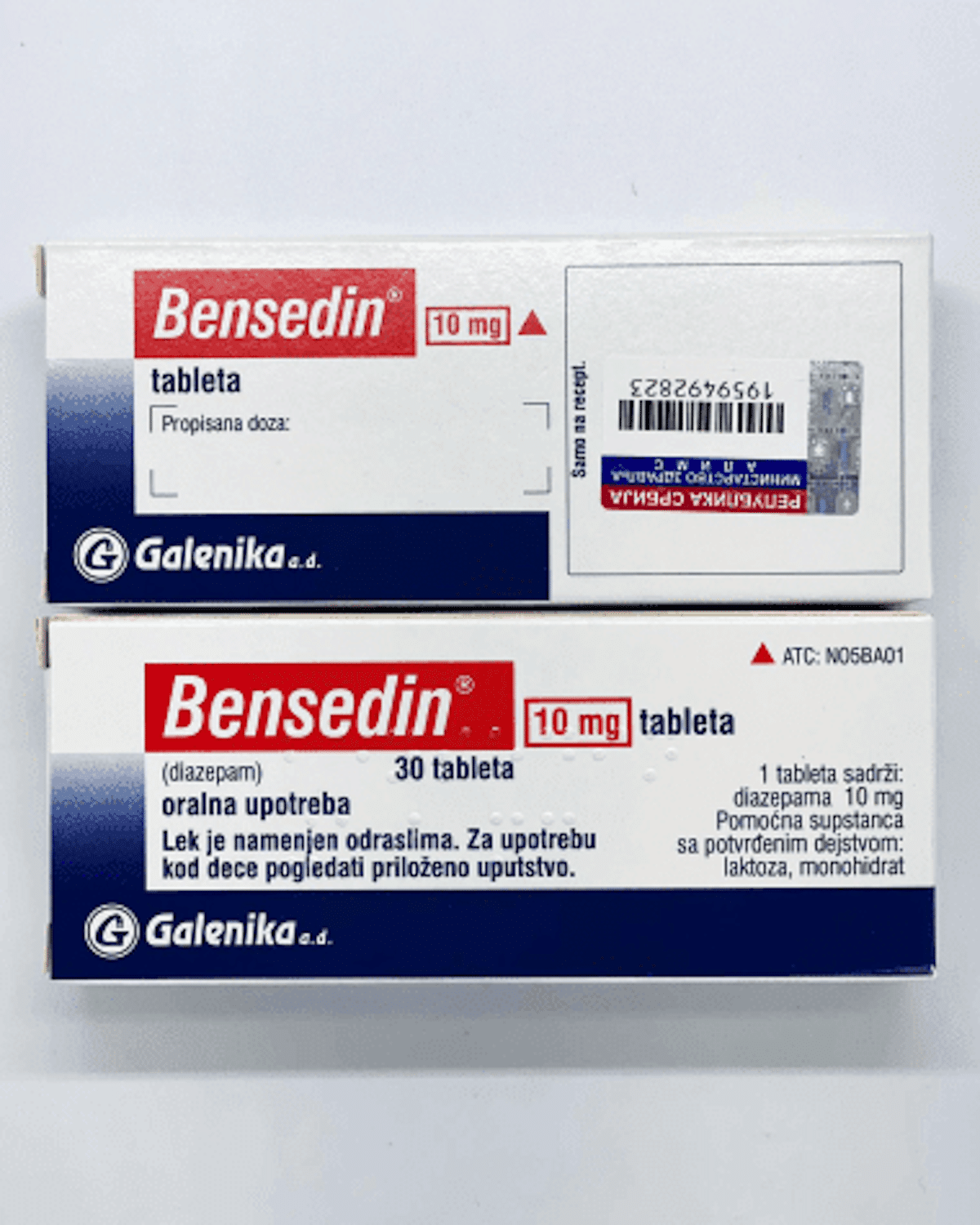Table of Contents
When does Bensedin 10 mg work best?
The intent of Bensedin 10 mg
Bensedin 10 mg is a pharmaceutical that contains the active component diazepam, which is a benzodiazepine. It is mostly used to treat anxiety, muscle spasms, and sleeplessness.
It works by boosting the effects of gamma-aminobutyric acid (GABA), a naturally occurring substance in the body that helps to reduce brain activity and generate a relaxing effect.
Bensedin 10 mg tablets are available and are usually administered in modest doses to avoid potential side effects such as sleepiness, decreased coordination, and memory issues.
It is a restricted substance that should only be used under the supervision of a healthcare expert.
Quick history of Bensedin 10 mg
Bensedin is a brand name for diazepam, a drug initially introduced by Hoffmann-La Roche in 1963. Because of its effectiveness in treating anxiety, muscular spasms, and other ailments, diazepam quickly became one of the most extensively prescribed drugs in the world.
It was marketed under a variety of brand names, including Valium and Diastat, and quickly became a popular medicine due to its ability to have a soothing effect while not producing severe drowsiness or compromising cognitive function.
Meanwhile, the growing consumption of diazepam has raised concerns about its abuse and addiction potential, especially when used in large quantities or for extended periods of time.
In response to all of these queries, diazepam was classified as a prohibited substance in several countries, with rigorous laws governing its sale and use.
Bensedin is still a popular brand of diazepam today, and it is produced by a number of pharmaceutical companies across the world.
Healthcare specialists regularly monitor its use to make sure it is utilised safely and efficiently, even though it continues to be employed for treating anxiety and other problems.
Active ingredient Bensedin 10mg
Bensedin 10mg is the commercial brand for diazepam, the medication’s active ingredient. Diazepam belongs to the benzodiazepine class of medicines, which are often used to treat anxiety, muscle spasms, and seizures. It works by boosting the activity of a substance in the brain known as gamma-aminobutyric acid (GABA), which has a soothing impact on the nervous system.
How Bensedin 10mg works?
Bensedin acts by boosting the function of a neurotransmitter in the brain known as gamma-aminobutyric acid (GABA). GABA is a neurotransmitter that acts as an inhibitor, which means it helps soothe the brain by reducing neuron activity.
Bensedin is a benzodiazepine that interacts with GABA receptors in the brain at specific places. This binding enhances GABA’s effect, resulting in greater inhibition of neurons in the brain. This has a soothing impact on the nervous system, which can aid in the relief of nervousness, tense muscles, and seizures.
Bensedin has a quick beginning of the action, with benefits felt within thirty minutes to one hour of taking it. The medication is metabolised in the liver and excreted through the urine. The length of its effects varies according to the individual, although it usually lasts several hours.
Uses of Bensedin 10mg
Bensedin, also known as diazepam, is a benzodiazepine medicine. Bensedin is widely used for the following conditions:
- Anxiety disorders: Bensedin is used to treat a variety of anxiety disorders, including generalised anxiety disorder, panic disorder, and social anxiety disorder. It can assist to alleviate anxiety symptoms such as excessive concern, apprehension, and restlessness.
- Muscle spasms: Bensedin can help relieve muscle spasms and stiffness caused by disorders such as multiple sclerosis (MS), cerebral palsy, and spinal cord injury.
- Seizures: Bensedin is employed to treat various forms of epilepsy, particularly seizures with fever, epileptic fits, and status epilepticus. It works by decreasing the electrical impulses in the brain that cause seizures.
- Alcohol withdrawal: Bensedin is occasionally used to treat various signs of alcohol withdrawal, such as shaking sensations, nervousness, and restlessness.
- Insomnia: Bensedin can be used for treating insomnia, which is a sleep disorder characterised by trouble sleeping or staying asleep.
It is vital to highlight that dosage should only be administered under the guidance of a healthcare expert because it is addictive and has a risk of abuse.
Benefits of Bensedin 10 mg
– It alleviates anxiety symptoms.
– Muscle relaxation.
– Sedative properties.
– Aids in the treatment of insomnia.
– Potential applications in the treatment of other medical disorders.
Side Effects of Bensedin 10mg
– Dizziness and sleepiness.
– Poor coordination.
– Memory issues.
– Migraines.
– Vomiting and nausea.
– Possibility of addiction.
Precautions and Warnings
– Avoid using it while pregnant or breastfeeding.
– Some drugs may interact with it.
– May exacerbate some medical issues.
– Not to be combined with alcohol or other tranquilisers.
How to Take Bensedin 10 mg Safely?
– Carefully follow the dosing guidelines.
– Do not take more than the suggested dose.
– Exercise extreme caution when driving or operating equipment.
– Stay away from alcohol and other sedatives.
– Consult a doctor if adverse effects arise or if you use it for an extended period of time.
Final thoughts on Bensedin 10 mg
Bensedin 10 mg, which includes the active component diazepam, is a drug frequently employed for the treatment of disorders such as anxiety, cramping of the muscles, epileptic fits, withdrawal from alcohol, and fatigue. It works by raising the production of GABA in the brain, leading to a calming impact on the nervous system.
It should be noted, however, that Bensedin has the potential for addiction and misuse. It may also produce sleepiness, dizziness, and poor coordination. As a result, it should only be administered under the supervision of a healthcare expert, at the lowest effective dose, and for the shortest duration possible.
Bensedin, in general, can be a useful prescription for the treatment of some ailments, but it should be used with caution and only when prescribed by a healthcare professional. People should also be aware of the potential risks and side effects of the medicine, and any concerns should be addressed to their healthcare professional.


